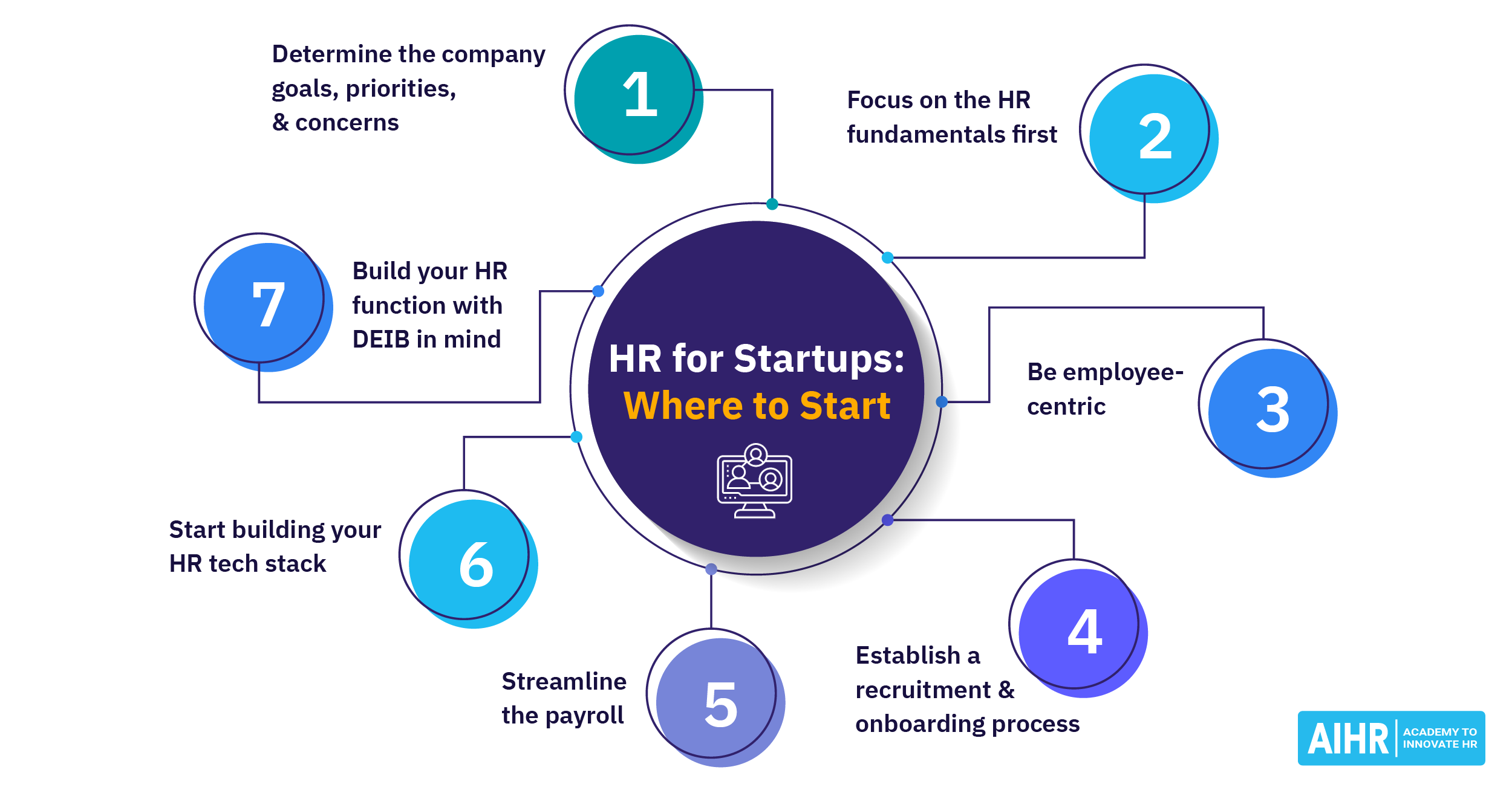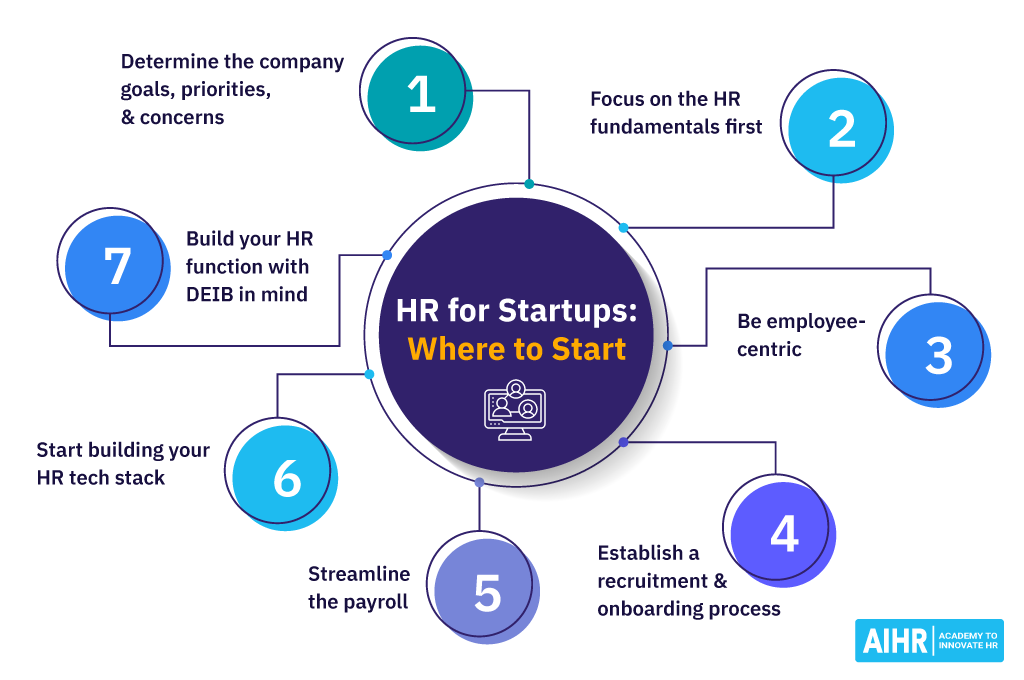Startups are unique. They are driven by tight budgets and a laser-focused approach to growing their bottom line. However, it’s crucial for startups to have effective HR strategies in place to succeed in scaling their operations. In this guide, we will explore why startups need HR and what HR for startups looks like in practice.
Does a Startup Need HR?
Absolutely! Founders in startups often wear multiple hats, including taking on human resources responsibilities despite lacking proper HR training. This can lead to disharmony within the team, which is a significant contributor to the failure of startups. In fact, 23% of businesses fail due to not having the right team.
Having a dedicated HR professional from the early stages of a startup is essential. Devoting resources to developing HR practices sets the foundation for long-term success in attracting and retaining top talent, ultimately leading to business growth. Startup accelerators also prefer teams with a history of working effectively together because it indicates stability. Investors rely on employee retention rates to gauge the effectiveness of the leadership team. While a startup may find ways to boost business growth, managing people effectively is not something that can be hacked.
What Does HR Do in a Startup?
In startups, HR matters are often handled by employees who have other primary responsibilities. However, when startups hire a dedicated HR employee, they typically start with an HR department of one. Here are the key responsibilities of HR in startups:
Set up the basics of HR policies and processes
HR functions in startups involve establishing foundational policies and procedures to provide employees with clear guidance and structure in the work environment. These policies cover areas such as pay and employee benefits, leave, discipline, internet and data usage, performance management, learning and development, and more.
Organize employee records
An HR department ensures that important records and documentation, including business paperwork, resumes, performance evaluations, leave records, and sensitive information, are properly maintained.
Grow the team
HR plays a crucial role in recruiting and onboarding new employees, bringing structure to the entire talent journey. As a business grows and takes on more team members, informal hiring practices become unprofessional and chaotic.
Ensure compliance with laws and regulations
Documenting policies and processes and ensuring compliance with local, state, and federal laws is crucial for startups, especially as they reach 50+ employees. This helps prevent potential lawsuits.
Improve employee wellbeing
HR professionals prioritize employee wellbeing, whether it’s mental, physical, or financial. They ensure new hires are properly welcomed, trained, and given the development they need. HR also provides employees with access to equal pay and a safe workplace.
Help build an inclusive work environment
Nurturing an inclusive work environment is essential for startups. HR plays a significant role in creating a culture of inclusivity, resulting in happier employees, increased innovation, and higher employee retention rates.
Prepare the company for growth
HR helps startups prepare for growth by creating hiring plans, developing organizational culture, and implementing scalable processes for hiring and onboarding. As the company expands, the HR team also grows.
How to Build an HR Department in a Startup?
Building an HR department from scratch in a startup requires careful planning and execution. Here are the steps to follow:
1. Determine the company goals, priorities, and concerns
Understand the startup’s business, target audience, strategy, and current HR state. Identify areas of concern, compliance needs, and necessary developments to meet the company’s vision and goals. Educate employees and leaders on the function of HR.
2. Focus on the HR fundamentals first
Start with the essential HR policies and documentation, including recruitment documents, employee contracts, code of conduct, disciplinary procedure, health and workplace safety policy, and more. Utilize templates and work with existing resources to build a solid foundation.
3. Establish a recruitment and onboarding process
Develop a seamless recruitment and onboarding process that aligns with the startup’s needs and values. Determine the stages involved, assessments, interview structures, documentation, and responsibilities. Provide clear and formal working agreements for new employees.
4. Streamline the payroll
Assess legal and policy requirements influencing the payroll process, conduct a cost-benefit analysis, and decide whether to insource, co-source, or outsource payroll. Formalize compensation and benefits structures, including retirement savings, paid leave, health insurance, and consider adding bonuses and stock options.
5. Start building your HR tech stack
Research and choose affordable tools and software that save time, aid organization and compliance. Identify necessary software for payroll, workforce management, HRIS, applicant tracking, learning and development, and performance management systems.
6. Be employee-centric
Prioritize the needs and desires of your employees. Schedule meetings, create a safe space for open discussions, address concerns promptly, and develop personal development plans for employees. Build an employee-centric culture that fosters growth and development.
7. Build your HR function with DEIB in mind
Focus on diversity, equity, inclusion, and belonging when creating policies, processes, and during the hiring journey. Conduct employee surveys, review policies, and make inclusion a core company value with leadership commitment.
FAQs
Q: Do startups need dedicated HR departments?
A: Yes, startups need dedicated HR departments to attract and retain top talent, ensure compliance, and foster a positive work environment.
Q: Why is HR important for startups?
A: HR helps startups build a cohesive team, set up policies and processes, ensure compliance, and foster employee wellbeing and growth.
Q: How can startups build an effective HR department?
A: Startups can build an effective HR department by understanding company goals, focusing on HR fundamentals, establishing recruitment and onboarding processes, streamlining payroll, using HR tech tools, prioritizing employees, and promoting diversity and inclusion.
Conclusion
Establishing an effective HR department in startups is crucial for long-term success. By prioritizing HR practices from the early stages, startups can attract and retain top talent, foster an inclusive work environment, and build a strong foundation for growth. Investing in HR is an investment in the company’s future.


